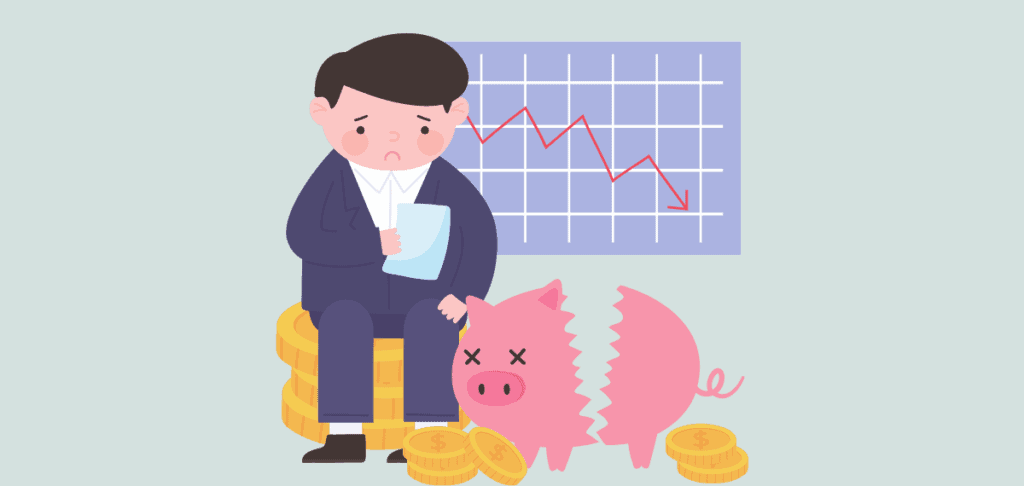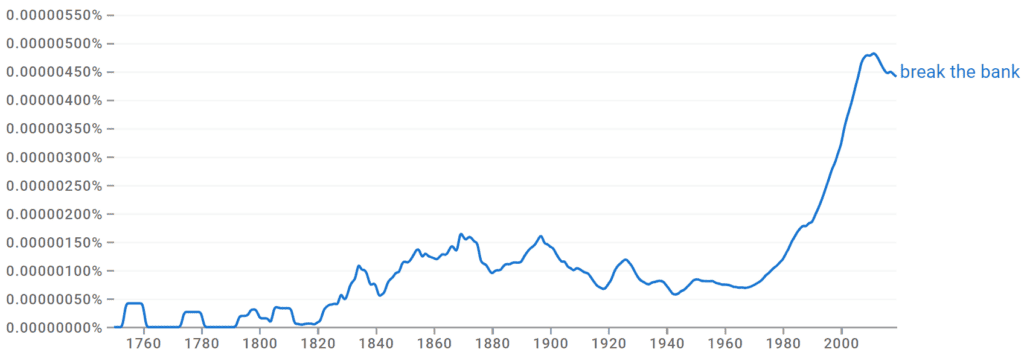Idiomatic phrases are excellent ways to help define and illustrate various messages in your speech and writing. They usually originate from a literal term. However, they generally become more well-known for their figurative applications through regular metaphorical and allegorical usage.
To break the bank is a great example of an idiomatic term that came into use due to a literal occurrence. Its roots are based on a financial event, and it is regularly used to help describe the exhaustion of an economic resource.
Let’s learn what breaking the bank means, where it likely originated from, and how to properly use it in your speech and writing.
What Does It Mean to Break the Bank?

Break the bank means exhausting one’s economic resources or being financially ruined.
For example:
- Unfortunately, she practically had to break the bank to start fresh, but the move was well worth it in the long run.
Beak the bank is often used in the negative to mean something is not expensive. For example, one may say that buying a modestly priced item doesn’t break the bank.
For example:
- With proper financial management, raising children doesn’t need to break the bank, and you can also teach them to make good economic decisions.
- We were able to find the perfect property with almost everything we desired without having to break the bank to do so.
- The condominium we rent on the beach is a hidden gem and provides an oceanfront property without having to break the bank.
Break the Bank Origins

There is some disagreement concerning the specific origins of the phrase break the bank. However, all agree that it first appeared in relation to gambling. The term refers to when a person wins more money than what could be paid out by an individual or a gambling establishment.
It’s likely variations of the term were used as early as the 17th century. However, the term’s official use is closer to the second half of the 19th century when the Englishman Joseph Jagger won $350,000 at the Casino de Monte Carlo in Monaco. This was a huge sum in 1873; it was said he broke the bank or severely challenged the establishment’s ability to pay him.
The official term in French was faire sauter la banque, meaning “blown up the bank.” It meant that the winning gambler won more chips than what was on the table. If this happened, a black cloth was placed over the table until reserve chips could be brought—often not occurring until the establishment won enough money off other gamblers.
Since then, the phrase has become popularly used in the English language. It was even the name of a well-watched television quiz show that originally launched in the 1940s and again in the 1970s, 1980s and 2000s.
Let’s Review
Claiming that something will break the bank means that it will exhaust or severely tax one’s financial resources. The term is often used in the negative, as in don’t break the bank, to serve as a warning to be financially responsible.
Historians don’t all agree on exactly when the term came into use. However, it was originally a gambling term to describe an establishment’s ability, or lack thereof, to pay out what was owed. The first true documentation of the term referred to a large winning at the Casino de Monte Carlo that taxed their ability to pay out.
Related Articles:
